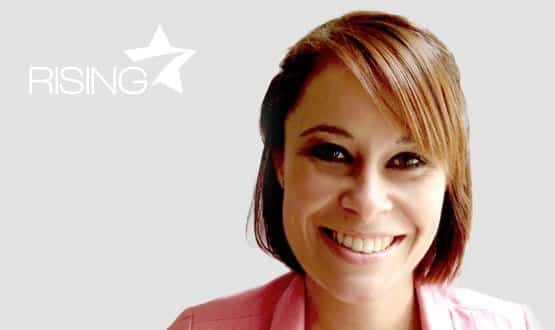Rising star: Bryony Walsh
- 26 February 2014

When 28 year-old Bryony Walsh describes her project manager role as “varied”, she is not exaggerating. In her time, she has done everything from creating a computer out of a cardboard box to writing project reports and battling through “never-ending” emails.
Yet, when Walsh left the University of Manchester with a degree in psychology, she had no plan for working in NHS IT.
Her plan was to travel the world while deciding what she wanted to do. But, instead, she started working for BT as a change control management and quality assurance analyst before becoming an environment project manager.
“I completely just ended up here. I always said I would never go into informatics,” she says. “When I left university I was going to do a job for a year and then go travelling. I got a job at BT and instead of going travelling I fell in love with project managing.”
During her time at BT, Walsh gained experience working with the NHS and liked what she saw so much that she jumped ship and moved her career into the public sector.
“I went to work for NHS Connecting for Health on the Summary Care Record as an implementation manager,” she says, adding that this was an “exciting” time.
“I then realised I wanted to stay working for the NHS. As tedious and clichéd as it is to say it, I like to do something that I know makes a difference to people. I’ve been here 18 months now. If I can encourage people to do research, we can make a big difference.”
The IT for research
Walsh’s organisation, the National Institute for Health Research, was set up by the Department of Health in 2006 to create a “world-class health system” within the NHS.
The Clinical Research Network, where she works, is part of the larger organisation and is in charge of providing the infrastructure to support the portfolio of “high quality clinical studies.”
Her role as project manager for the network consists of managing two main projects: an open data platform and a reference data service, as well as “all the little bits in-between.”
“The open data platform is our business intelligence tool which allows us to use technology to make data accessible, meaningful and easy to understand,” she says.
The open data platform, which is built on QlikView technology, links different data sets across the UK and enables users to interact with the data.
The tool allows the directors of the clinical research organisations to look at data relating to the performance of clinical research across the NHS.
Her project also includes an “app centre”, which serves as a single point of access for systems that support research.
“It lets us use all of that information to improve business intelligence. Reports that would’ve taken a whole day to do, now take ten minutes,” adds Walsh.
The other project she is managing is the Reference Data Service, a computer to computer based system for exposing clinical research reference data to systems deployed by the National Institute for Health Research and the life sciences industry. It also aims to establish a consistency across the systems.
Cardboard computers
Walsh loves the fast pace and challenges of the job, and really enjoys telling other people about what the clinical research network is doing.
“I spend quite a lot of time out presenting on what we’re doing,” she says, but admits she has not always been very keen on public speaking.
“When I started I couldn’t think of anything worse but now I love it and I’m really passionate about it. I want to show people that we want to make a difference.”
She also loves the “variety” of her role. “My work is very different. For instance, in one week I produced a ‘lessons learnt’ report on a project, a communications video, and a computer out of a cardboard box,” she says.
Seeing EHI’s puzzlement about the cardboard computer, she explains that the institute regularly does “lunch and learn” sessions at which the different departments get together for lunch to learn more about what other teams are up to.
On this particular occasion, which happened to be around Christmas time, her team came up with a ‘Christmas Carol’ skit with a twist.
“For the Christmas special we did ‘A Christmas Carol’ with the ghosts of informatics past, present and future, and I made a cardboard computer for the ghost of informatics past to carry with him,” she says.
Email and biscuits
She adds that coming to work with like-minded people in a good working environment is an important part of her job satisfaction and development.
She says the job enables her to think creatively to come up with solutions “outside the box” and she is constantly on her feet.
However, she admits that not every day involves using your creative mind. Walsh particularly dislikes “never-ending emails”, which she deals with every morning, and finds the amounts of project reporting she has to do very challenging.
“The big challenge is the amount of the reporting we do. We have to do the reporting to learn lessons from it and look at what we did well and what we could do better,” she says. “It’s a good thing, but it is also the hardest and most challenging part of the job. It can also take a lot of time. “
However, a steady supply of biscuits and quality brew helps overcome any challenge. After all, despite ending up in NHS IT “purely by chance”, Walsh really loves her job.
In fact she loves it so much, she says “the excitement of going to work” makes her jump out of bed in the morning. “The professional development here is excellent,” she adds.

Are you a “rising star” of NHS IT? Or do you know somebody who is? EHI is looking to talk to people who are at a relatively early stage in their careers who are set to shape the healthcare IT and information world of the future.
If you know somebody who should be profiled, who is happy to talk about their working lives, their favourite projects and ambitions, please contact EHI reporter Lis Evenstad.
The EHI Awards 2014 include a new Rising Star category, designed to highlight the work of health informatics staff under the age of 30 who are achieving excellent results and making an outstanding contribution to healthcare.




